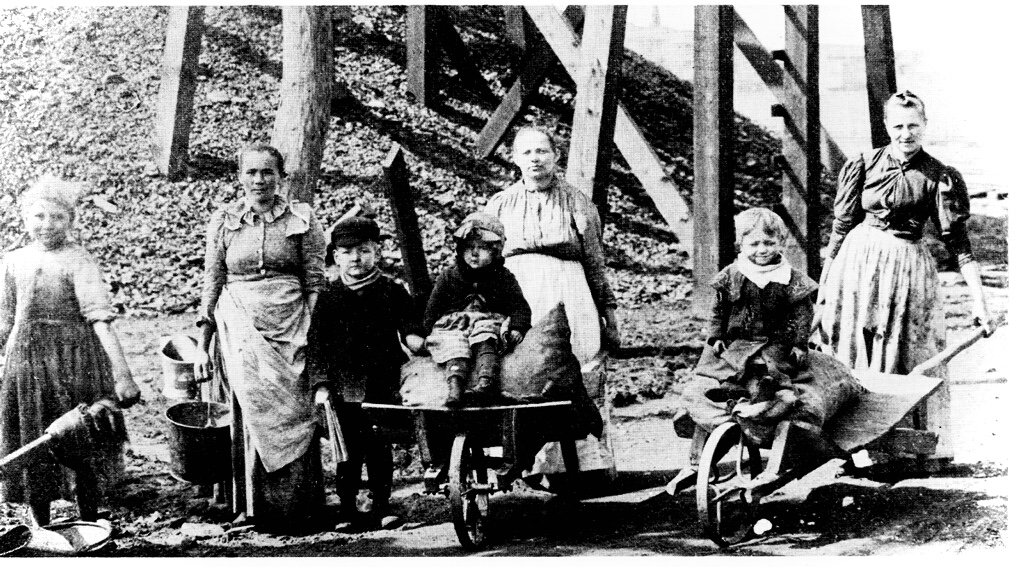
I am often asked if these stories are real. ROCKED IN THE CRADLE OF COAL stories are as true as photographs, as factual as historical newspaper articles, as accurate as personal diaries, and as precious as memories.
Before reading about the lives of early 20th Century children living in anthracite coal country there are some things you should know. Life for these immigrant children was very different from the way children live today.
Photo courtesy of the Luzerne County Historical
Society
“ROCKED IN THE CRADLE OF
COAL” BOOKS
What was life like in the early 1900s for a poor eastern European immigrant seeking a better life in America? If you had only a meager education and didn’t speak English well, if you had spent most of your savings buying passage on a ship to The Land of Opportunity, and if you also had a family to support, then a job in the Pennsylvania coal mines was your best chance at achieving The American Dream.
Can you imagine long days working hundreds of feet underground in cold dampness? There was no light except for a small carbide lamp bracketed above the brim of your canvas cap. Water was constantly dripping down the black mine walls, and the rocky floor was wet and slippery. Sticky black coal dust filled the air and coated your skin, clothing, and lungs.
Many miners got sick from inhaling the coal dust. Miners' Asthma, or Black Lung Disease, forced some miners to leave the mines. Deadly mining accidents claimed others. If a miner was not able to work, then his family no longer received his pay. They also had to vacate their company-owned house, unless one of his boys was old enough to work in the mine. That is why sons of miners often had to quit school early, even before completing elementary school, so they could help support their families.
Young girls also learned to contribute to the success of their families. They helped with cooking and household chores, gardening, and tending to younger siblings. Eventually, even the girls left school early to work outside the home for whatever meager pay they could earn. Did the children get to keep their wages? No, children dutifully handed over their pay envelopes to their parents. Survival of the family was everyone’s primary concern.
